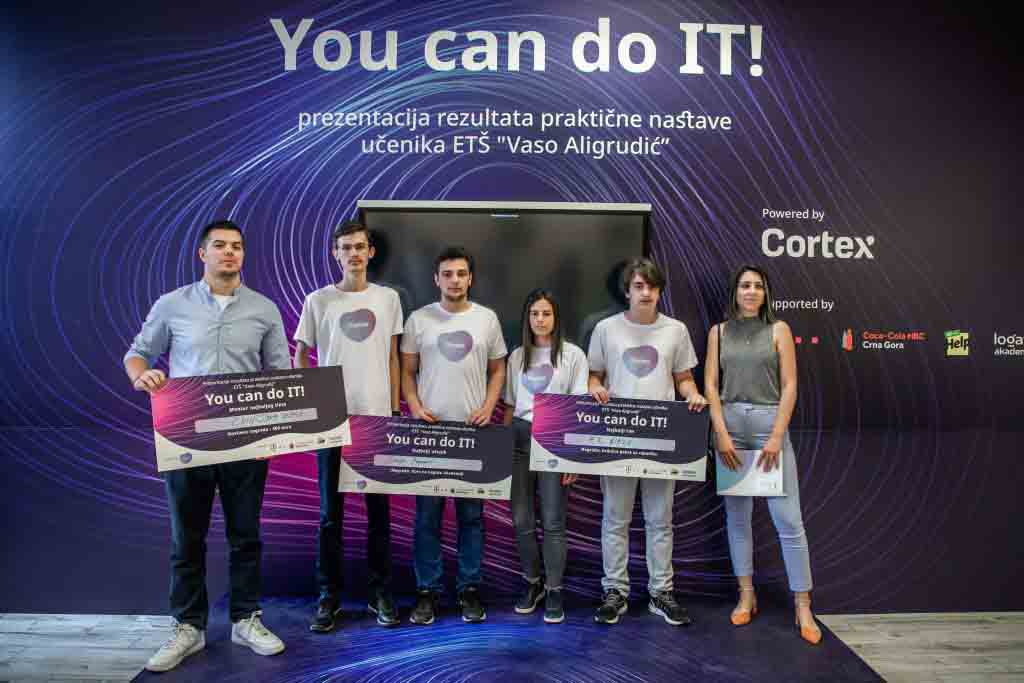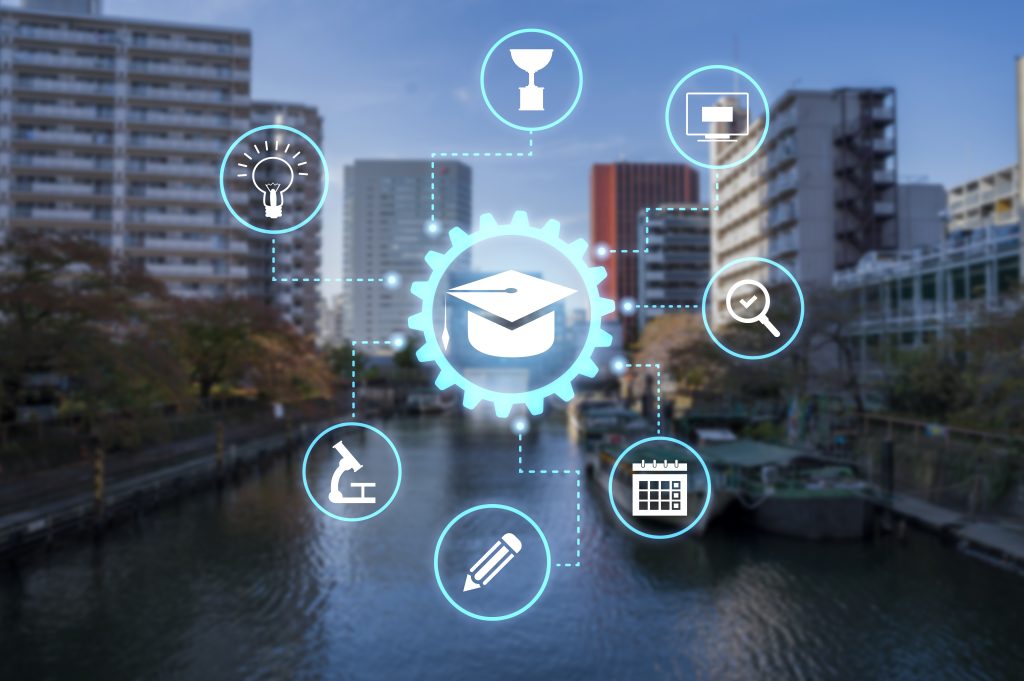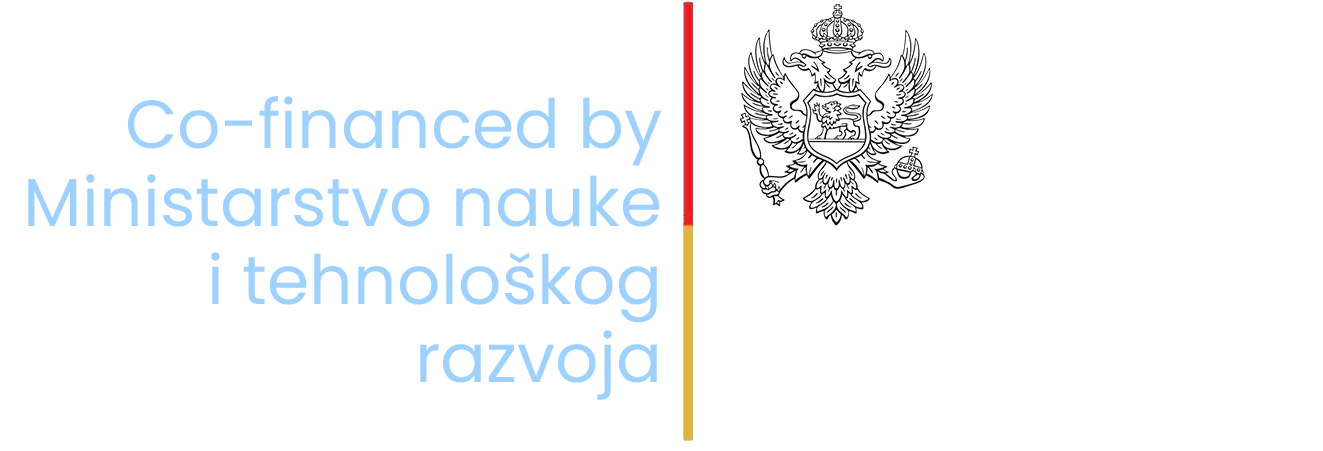Adizes leadership program

Adizes leadership program Brief description of the project: The projectcontribute to the development, growth and competitiveness of members of the ICT Cortex cluster, through the improvement of management and leadership skills of directors/managers of IT companies. It is a one-year leadership program that is based on the Adizes methodology and can be implemented immediately in the company, in order to achieve exceptional results and manage changes, organizations and human capital without destructive conflict. It focuses on different leadership styles and provides a holistic approach to company management, with the goal of developing managers to create outstanding organizations. Two groups of 25 participants each undergo training, and the trainings are held once a month. Upon completion of the training, all participants will receive certificates. Key activities: Selection and profiling of participants, Organization of monthly trainings for two groups of participants, Mentrostvo, Organization of three master classes, knowledge testing, Awarding of certificates. Project partners: Company Adizes Institute Duration: May – December 2023 Budget: 69,157 euros Funding by: EBRD office in Montenegro (logo) and co-financing of member companies Projects Curriculum development for soft skills December 29, 2023/No Comments Curriculum development for soft skills Brief description of the project: Based on the results fromof the first cycle of the… Read More Skills for the future of business December 29, 2023/No Comments Skills for the future of business Brief description of the project: As education is oneof the strategic goals of the… Read More Analysis of the IT sector of Montenegro December 29, 2023/No Comments Analysis of the IT sector of Montenegro Brief description of the project: The analysis isgave a deeper insight into the… Read More Više objava End of Content.
Curriculum development for soft skills

Curriculum development for soft skills Brief description of the project: Based on the results fromof the first cycle of the Cortex Academy, the second cycle included training for the development of soft skills. These are skills related to interaction with other people, communication, teamwork, problem solving, adaptability and other non-technical knowledge and abilities. They include: communication (verbal and non-verbal), cooperation and teamwork, leadership, time management, problem solving, adaptability, creativity, critical thinking, motivation, empathy, adaptability, flexibility. This program is a great complement to Cortex Academy’s technical courses and is intended for the best Cortex Academy candidates as well as employees of member companies, who want to upgrade their technical knowledge with soft skills. The course plan and program will be adapted to each target group, in accordance with its needs and specifics. Key activities: Curriculum development for Cortex Academy’s soft skills program. Project partners: – Duration: February – maj 2023 Budget: 4,667.50 euros Funding by: Reconomy logo
Skills for the future of business

Skills for the future of business Brief description of the project: As education is oneof the strategic goals of the cluster with the aim of solving the problem of lack of qualified staff and improving the employment of IT experts, this project was aimed at strengthening human resources, i.e. existing staff in IT companies that are members of the cluster, through professional certification of key employees. 12 participants from 4 cluster companies completed the training program. The greatest interest of the participants was in AWS courses. Upon completion of the courses, all participants had a period of time to prepare in order to successfully pass the exam and obtain the certificate. Key activities: Choosing a training provider; Selection of participants; Course selection; Organization of education programs, Testing; Awarding of certificates for positions in the IT industry; Promotion of the project. Project partners: The company SEMOS Education from North Macedonia Duration: November 2022 – March 2023 Budget: 10,665 euros Funding by: Reconomy logo Projects Analysis of the IT sector of Montenegro December 29, 2023/No Comments Analysis of the IT sector of Montenegro Brief description of the project: The analysis isgave a deeper insight into the… Read More Promotion of Cortex Academy December 29, 2023/No Comments Promotion of Cortex Academy Brief description of the project: The project was realized with the aim of presenting results, good… Read More Program for the development of cluster capacities December 29, 2023/No Comments Program for the development of cluster capacities Brief description of the project: The need for a cluster agent came naturally… Read More Više objava End of Content.
Analysis of the IT sector of Montenegro

Analysis of the IT sector of Montenegro Brief description of the project: The analysis isgave a deeper insight into the current state of the IT sector in Montenegro, its contribution to GDP, key barriers to faster development and the potential of the IT sector as key to the growth of the Montenegrin economy. The general goal of the project was that decision-makers and interested parties, based on the collected data, could continue to work on eliminating business barriers, that IT companies determine further business development directions, and that potential investors and companies planning to start business in Montenegro have an insight into the Montenegrin IT market, its strengths and weaknesses, threats and opportunities. Key activities: Qualitative research, Quantitative research, Creating an Analysis, Presentation of the results at the press conference. Project partners: The CEED Consulting company from Podgorica Duration: November 2022 – March 2023 Budget: 5,000 euros Funding by: Reconomy logo Projects Promotion of Cortex Academy December 29, 2023/No Comments Promotion of Cortex Academy Brief description of the project: The project was realized with the aim of presenting results, good… Read More Program for the development of cluster capacities December 29, 2023/No Comments Program for the development of cluster capacities Brief description of the project: The need for a cluster agent came naturally… Read More Support for cluster internationalization activities December 29, 2023/No Comments Support for cluster internationalization activities Brief description of the project: The project represents de minimis support in order to realize… Read More Više objava End of Content.
Promotion of Cortex Academy

Promotion of Cortex Academy Brief description of the project: The project was realized with the aim of presenting results, good examples and best practices from the first cycle of the Cortex Academy, as well as promotion and presentation for the second cycle. It included the development of a marketing plan, campaigns for the entire project and separate events, as well as promotional activities on websites and social networks, with the aim of showing the importance and value of the Cortex Academy and through experiences, the improved digital skills that have been achieved among the Montenegrin population and young people, and will additionally contribute to raising awareness of IT professions. Key activities: Preparation and publication of training video material, Recording and publication of testimonials, Preparation and printing of promotional material for the final event of the first cycle, Creating a marketing plan, Promotion on social networks. Project partners: Foundation Čini dobro, municipality of Nikšić Duration: August 2022 – January 2023 Budget: 4,300 euros Funding by: Reconomy logo Projects Program for the development of cluster capacities December 29, 2023/No Comments Program for the development of cluster capacities Brief description of the project: The need for a cluster agent came naturally… Read More Support for cluster internationalization activities December 29, 2023/No Comments Support for cluster internationalization activities Brief description of the project: The project represents de minimis support in order to realize… Read More Job Booster – Vet4All December 29, 2023/No Comments Job Booster – Vet4All Brief description of the project: The project was prepared in cooperation and for the needs of… Read More Više objava End of Content.
Program for the development of cluster capacities

Program for the development of cluster capacities Brief description of the project: The need for a cluster agent came naturally after the first year of operation of ICT Cortex. We received support in this field from the EBRD office in Montenegro. After the diagnostic study, an education aimed at development was organized for the executive office of ICT Cortexcluster business model and ensuring the sustainability of the organization. All members of the office went through the training, and after the training, testing was organized. All team members successfully passed the test and received certificates. Key activities: Organization and implementation of education programs, Rad with the cluster agent, Testing and certificates. Project partners: Kompanija Strategy Tools i klaster agent Roberto Chaverri Duration: June 2022 – February 2023 Budget: 20,000 euros Funding by: EBRD office in Montenegro (logo) Projects Support for cluster internationalization activities December 29, 2023/No Comments Support for cluster internationalization activities Brief description of the project: The project represents de minimis support in order to realize… Read More Job Booster – Vet4All December 29, 2023/No Comments Job Booster – Vet4All Brief description of the project: The project was prepared in cooperation and for the needs of… Read More StepUpWithCortex – Improving the competitiveness of small IT companies in Montenegro December 29, 2023/No Comments StepUpWithCortex – Improving the competitiveness of small IT companies in Montenegro Brief description of the project: The goal of the… Read More Više objava End of Content.
Support for cluster internationalization activities

Support for cluster internationalization activities Brief description of the project: The project represents de minimis support in order to realize the segment of internationalization and study visits of clusters in the region. It will include networking and cooperation with IT companies from the region and Europe, for the purpose of implementing joint initiatives, participation in EU tenders, exchange of experience, knowledge and good practices. Key activities: Organization and realization of study visits in the Western Balkans, in Eastern and Western Europe, in the Nordic region and the USA. Project partners: – Duration: May 2022 – December 2024 Budget: 200,000 euros Funding by: Ministry of Science and Technological Development Projects Job Booster – Vet4All December 29, 2023/No Comments Job Booster – Vet4All Brief description of the project: The project was prepared in cooperation and for the needs of… Read More StepUpWithCortex – Improving the competitiveness of small IT companies in Montenegro December 29, 2023/No Comments StepUpWithCortex – Improving the competitiveness of small IT companies in Montenegro Brief description of the project: The goal of the… Read More Let’s do practice December 28, 2023/No Comments Let’s do practice Project Brief: The project presents Cortex practice for high school students. 28 third-grade students of the Vaso… Read More Više objava End of Content.
Job Booster – Vet4All

Job Booster – Vet4All Brief description of the project: The project was prepared in cooperation and for the needs of the Electrical Engineering School “Vaso Aligrudić”, and it is supported by member companies, namely: Alicorn, Amplitudo, Bild studio, Data Design, Oykos Development. It represents the improvement of dual education, as well as changes and additions to the curriculum, as well as the practice of high school students in the member companies of the cluster with the mentorship of experienced professionals. Key activities: Changes and additions to the curriculum, Procurement of modern IT equipment, Internship of high school students in companies, Program mentoring for high school students. Project partners: Electrical engineering school “Vaso Aligrudić” and member companies: Amplitudo, Alicorn, Bild studio, Data Design, Oykos Development. Duration: May 2022 – May 2025 Budget: 511,508.00 euros Funding by: Regional Challenge Fund (logo)
StepUpWithCortex – Improving the competitiveness of small IT companies in Montenegro

StepUpWithCortex – Improving the competitiveness of small IT companies in Montenegro Brief description of the project: The goal of the project was to contribute to the development, growth and competitiveness of small IT companies in Montenegro, members of the ICT Cortex cluster, by improving the business skills of employees and providing the necessary knowledge and competencies. The main activities related to the development and implementation of education and advisory support programs. Among the end users are 12 small IT companies that received the support of qualified experts in order to improve their institutional, organizational and administrative capacities. Key activities: Development and implementation of education programs on five topics: Business Communication, Project Management, Sales, Financial Management and Leadership. Development and implementation of the mentoring program. Project partners: The capital is Podgorica Duration: March 2022 – November 2022 Budget: 49,341.51 dollars Funding by: The Kingdom of Norway through the UNOPS office in Montenegro (logos of the Kingdom and UNOPS)
Let’s do practice

Let’s do practice Project Brief: The project presents Cortex practice for high school students. 28 third-grade students of the Vaso Aligrudić School of Electrical Engineering participated. They were divided into 7 teams and had the same task: creating an information system for the school library. The practical part was organized in 7 ICT Cortex companies (Alicorn, Amplitudo, Bild Studio, Coinis, Data Design, Logate and Oykos Development) while 15 mentors with many years of experience worked with the students. The project lasted 7 weeks, that is, seven iterations organized according to the agile work methodology. At the presentation of technical solutions, an objective jury judged all presented web applications as functional. Key Activities: Organization of education programs, Creating an application, Posting the code on GitHub, Implementation on Confluence, control exam, Organizing practical classes in companies for class III and IV. Project Partners: Electrical engineering school ‘Vaso Aligrudić and member companies: Alicorn, Amplitudo, Bild Studio, Coinis, Data Design, Logate, Oykos Development. Duration: april 2021 – december 2021 Budget: 35.000 eur Funding Source: Reconomy logo, Telekom, Logate Akademija, Coca Cola, Duka hosting.
Support for Promotional Activities of the ICT Cortex Cluster

Support for Promotional Activities of the ICT Cortex Cluster Project Brief: The HELP Office in Montenegro is the first donor of ICT Cortex, providing support during the cluster’s establishment, positioning, and long-term operations in Montenegro and the Western Balkans. It initiated a public campaign consisting of various activities on social media, PR articles on relevant portals, TV appearances, university promotions, and other awareness-raising events. The project also involved the creation of the cluster’s website and academy. Key Activities: Organizing a promotional campaign for the cluster Developing the cluster’s website and academy website Establishing a graphic standards manual Crafting a marketing plan for cluster promotion Organizing promotional events Project Partners: Member companies, including Bild Studio, Fleka, and Logate. Duration: March 2021 – February 2022 Budget: 20.000 eur Funding Source: Reconomy logo
RCF: Grants awarded for the development of professional education

The official ceremony for the awarding of grants from the Regional Fund for Challenges was held on February 2, 2021, at the Chamber of Commerce of Montenegro. The ceremony brought together representatives of the Ministry of Education, Science, Culture and Sports, the Comoros Investment Forum, the German Embassy, KfW – the German Development Bank, and representatives of the award-winning consortia. The Regional Challenge Fund (RCF) is a financial mechanism designed to improve the employability of young people. This project is financed by the German Federal Ministry for Economic Cooperation and Development (BMZ) through the German Development Bank (KfW). The main partner in the implementation of the project is the Chamber Investment Forum of the Western Balkans 6 (WB6CIF). At the meeting, it was announced that after the first call for project proposals, RCF received 205 declarations of interest from consortia and institutions dealing with professional education and training, as well as companies from the Western Balkans region. Of the total number of applications, 29 came from Montenegro. Following the further work of the Selection Committee, a decision was made to propose the two most successful projects from Montenegro for financing and receive investments in infrastructure and equipment in institutions for professional education, as well as training and development of all those involved in the implementation of the cooperative education program. The funds will be invested in the total amount of EUR 937,249. The consortium consisting of the High School of Electrical Engineering “Vaso Aligrudic” from Podgorica with partners Bild Studio, Alicorn, Data Design, Amplitudo, and Mont-inženjering received a grant of 511,509 thousand euros, while the consortium of the High School “Danilo Kiš” from Budva with partners Hotelska Grupa Montenegro Stars, Budva, Gospoština Lux, Budva, and Spencer & Hill Team, Bečići awarded a grant for 425,740 thousand euros. The ceremony was attended by Dr. Nina Drakić, President of the Chamber of Commerce of Montenegro, Robert Heinrich Weber, Ambassador of the Federal Republic of Germany in Montenegro, Marija Lalatović, Director of the Directorate for General Secondary Education, Vocational Education and Adult Education, Ministry of Education, Science, Culture and Sports, Željko Uljarević, Director of KfW German Development Bank, Office in Montenegro. The meeting was moderated by Balša Ćulafić, project coordinator for the RCF on behalf of the Chamber of Commerce Investment Forum and coordinator for cooperation with international organizations in the Chamber of Commerce. The President of the Chamber of Commerce, Dr. Nina Drakić, pointed out that this project of the Regional Fund for Challenges is important for Montenegro and neighboring countries because it offers the necessary new knowledge, new personnel energy, that is, qualified employees and executors for our economy to be competitive. – An economy that develops under the influence of new technologies and market demands also implies an educational system that is constantly improved and adapted to the needs of the times. Digitization, automation, artificial intelligence, and other consumer demands will continue to demand and impose new qualifications of professional knowledge and education – said Drakić. According to her, the received grants will improve the work of eight economic entities and two educational institutions from Montenegro, and it is encouraging that even smaller companies are interested in improving personnel capacities and cooperation with educational institutions. She invited companies and educational institutions to apply in the following calls and announced that they will begin activities to announce a new one at the end of the month. German Ambassador Robert Heinrich Weber congratulated the consortiums from Montenegro that received grants for projects from the Regional Fund for Challenges. According to him, the promotion of employment and nurturing of professional education is the main focus in the activities carried out by KFW in recent years, and a very important topic when talking about the cooperation between Montenegro and Germany. – We know that cooperation between vocational schools and the private sector is necessary and extremely important. This is a way to finance and connect regional training centers and the private sector to develop programs that match the needs of the economy. A well-trained workforce is a key to sustainable economic growth and long-term survival of the market – said Weber. He points out that Germany wants to support Montenegro on its European path, and that we should be proud that the implementation of this project will provide a strong contribution to the competitiveness of Montenegrin companies on the common market of the European Union. Marija Lalatović, Director of the Directorate for General Secondary Education, Vocational Education and Adult Education of the Ministry of Education, Science, Culture and Sports, said that only through the cooperation of partners from the world of education and work, the vocational education system can follow the needs of the economy and the individual to he managed as well as possible on the labor market. She said that the results of this project will contribute to the further development of professional education, the improvement of knowledge and skills in priority sectors, greater employment of young people, and the creation of new jobs, as well as greater participation in lifelong learning.


